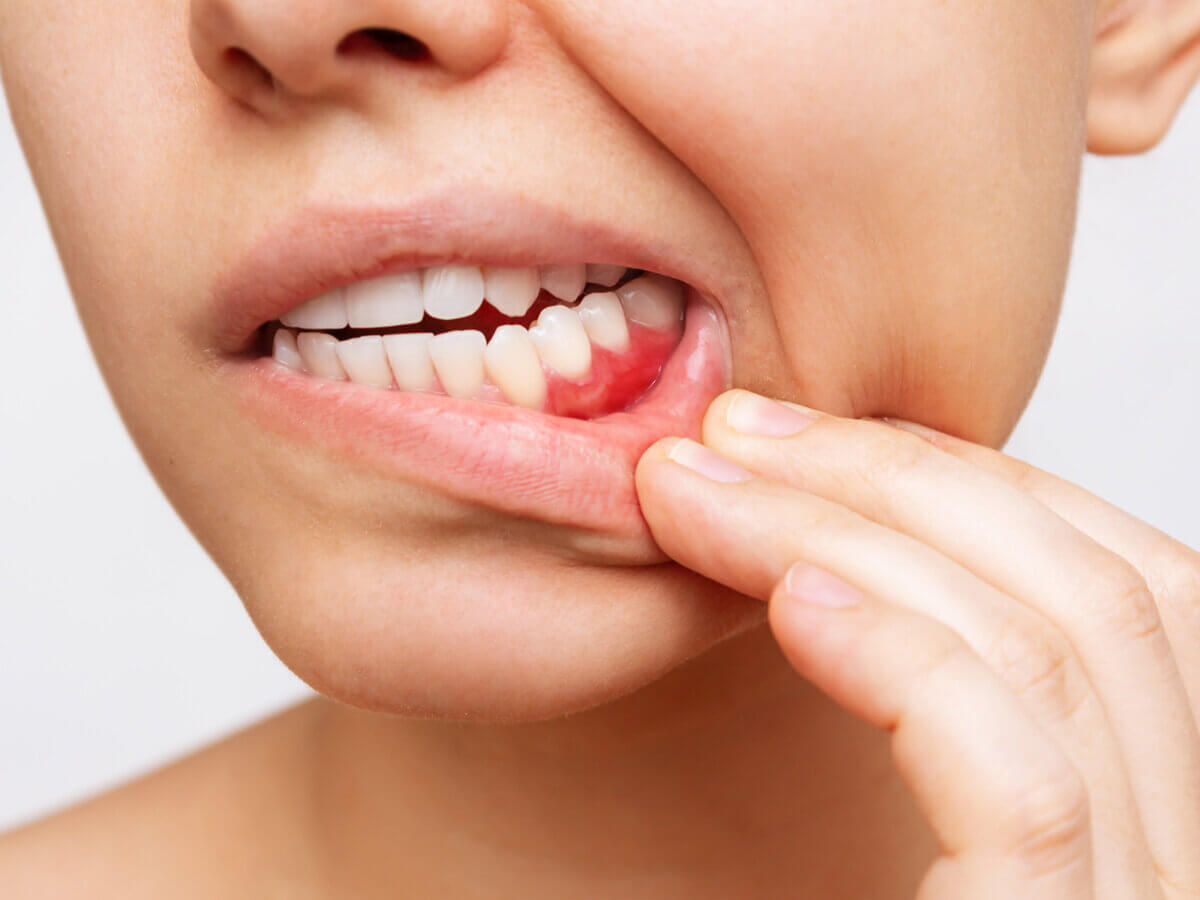Blog
Dental hygiene tips for healthy teeth & gums

Why Do You Have A Bump on Your Gums?
Your oral health plays a pivotal role in your overall well-being. Any unusual occurrences in your mouth, such as the development of a bump on your gums, can understandably cause concern. These bumps can vary in size and color, often leading to questions about their origin and implications for oral health. In this article, we’ll delve into the various reasons for a gum bump and discuss when it might be time to consult a dental professional.
Causes of A Bump On Your Gum
- Canker Sores: Also known as aphthous ulcers, canker sores are a prevalent cause of gum bumps. These painful, round, or oval sores usually have a white or yellow center surrounded by a red border. While they are generally harmless, they can be quite uncomfortable. Factors like minor injuries or stress often trigger their appearance, but they usually heal within a week or two.
- Gum Abscess: This is a more severe condition resulting in a painful bump on the gums. It arises when bacteria invade the soft tissue of your mouth, leading to an infection. Symptoms include swelling, pain, redness, and a pus-filled bump. It’s essential to address gum abscesses promptly to prevent the infection from spreading or damaging adjacent teeth and bones.
- Oral Cancer: While many gum bumps are benign, it’s crucial to recognize that oral cancer is a potential concern. It can manifest as a lump or bump in the mouth, including the gums. Other symptoms might include persistent mouth sores, difficulty swallowing, and unexplained weight loss.
- Gingival Overgrowth: Also known as gingival hyperplasia, this condition involves the abnormal growth of gum tissue, leading to bumps or lumps on the gums. It can stem from various factors, including certain medications, hormonal changes, or inadequate oral hygiene.
- Dental Abscess: This refers to a pocket of pus that forms either inside a tooth or in the surrounding gum tissue. It typically presents as a painful bump near an infected tooth. Symptoms might include a severe toothache, sensitivity to temperature, swollen gums, and fever. Dental abscesses often arise from untreated cavities or dental trauma.
How to Treat a Bump on Your Gums
The treatment approach depends on the bump’s underlying cause. Here are some general recommendations:
- Maintain Good Oral Hygiene: Brushing and flossing regularly is essential. A clean mouth can aid in healing and prevent complications.
- Topical Medications: For canker sores or minor irritations, over-the-counter ointments or gels designed for oral use can offer relief.
- Warm Saltwater Rinses: Gargling with a saltwater solution can help reduce inflammation and promote healing.
- Avoid Irritating Foods: Steer clear of foods that might exacerbate the condition, such as spicy or acidic items.
- Pain Relief: Over-the-counter pain relievers can help alleviate pain and discomfort.
However, while these remedies might offer temporary relief, it’s essential to consult a dentist or oral healthcare provider for a proper diagnosis and treatment, especially if the bump persists or worsens.
Conclusion
Bumps on the gums can arise from a variety of causes, from benign conditions like canker sores to more serious issues like abscesses. While some bumps might resolve with simple home remedies, persistent or painful ones should not be ignored. Good oral hygiene can help prevent many oral health problems. Prioritize your oral health as it’s integral to your overall well-being, and addressing any concerns promptly can ensure a radiant and healthy smile.


